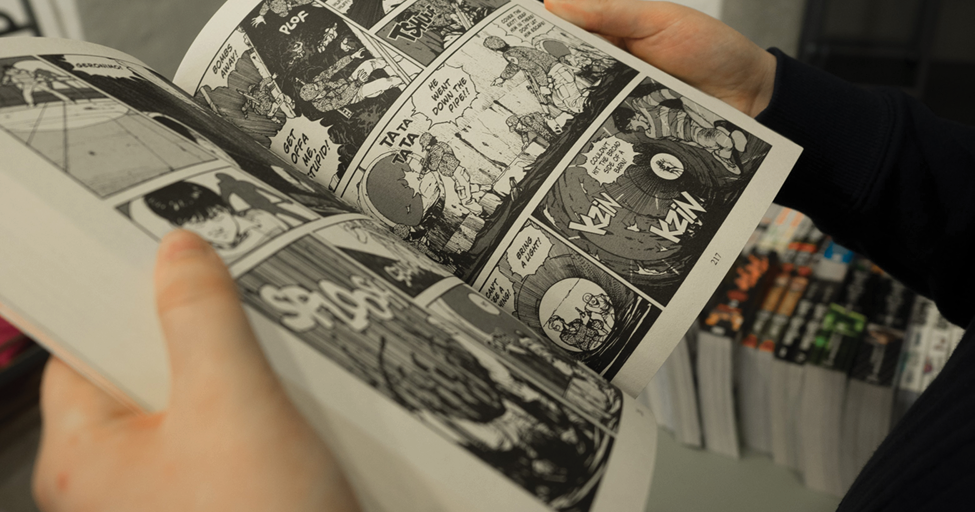
How to Self-Publish a Graphic Novel
March 3, 2021
Benefits of Choosing a US-Based Publishing Company
March 31, 2021Self publishing vs. traditional publishing
If you’re writing a book, it’s crucial to know the difference between your two main publication options: self publishing vs. traditional publishing. Both new authors and more established ones are increasingly turning to self publishing (or “indie publishing”) to release their new titles.
Unlike with traditional publishing, self publishing allows writers to control many more aspects of the publication process. It also allows them to keep a higher percentage of their earnings. But having more control doesn’t have to mean going it alone. Many professional services are available to help indie authors with editing and other crucial aspects of the self publication process.
This article will cover some of the most important things to keep in mind when choosing between self publishing and traditional publishing.
Traditional and indie publishing options
As you finish up your manuscript and consider taking it to print, you’ll want to understand your publishing options. Should you go the traditional route or dive into the indie world of self publishing?
But first, what does self publishing mean? Simply stated, self publishing is the process of an author releasing their book to the world without using a traditional publisher.
Self publishing used to be a relatively small publishing category. But it has grown substantially with the rise of digital publishing, print-on-demand, and e-book distribution platforms. This growth in the publishing industry is providing new distribution channels that make it easier than ever to release a book.
Understanding traditional publishing
Traditional publishing happens through an established publishing house. This can be a large, well-known company that has been around for many decades, or it can be a smaller independent publisher.
Unfortunately, traditional publishing is competitive and difficult to break into. Large publishing houses are notorious for turning down book pitches and unsolicited manuscripts. To even be considered by one of these established publishers (much less land a book deal!), you will most likely need an established book agent.
In exchange for a fee or commission, a book agent acts as an intermediary with the publisher. They initiate preliminary contact and can also manage various aspects of the traditional publishing process. For example, they may negotiate your contract with the publisher and the percentage of royalties you will receive as the author.
Despite the difficulties inherent in the process, many authors want the prestige of having a large, traditional publishing house accept their manuscript.
Considering whether to self publish your book
With self publishing, you retain more control over the publishing process. This more flexible process allows you to determine everything from the publication timeline to the type of book cover you prefer.
Depending on the publishing platform you use, you can even easily implement small changes to your e-book or print-on-demand book after its release. You can directly publish e-books on platforms such as Kobo or Amazon (for example, through Kindle Direct Publishing). And e-book publishing is also very flexible regarding the length of your e-book.
Self publishing is also a great way to try your hand at writing a full-length book, especially if you are a first-time author. In fact, many now-classic or best-selling works were initially self published. Traditional publishing houses simply widened the distribution of these works later on.
With the rise in the popularity of self publishing, some successful established authors are sticking entirely to this format. Others are using hybrid publishing, which falls in between self publishing and traditional publishing.
Self publishing can also a great marketing tool if you have a related business. For instance, if you teach workshops or publish weekly content, your book can serve as an example of the kind of work you do. This can then bring in potential clients.
Choosing the best publishing option to meet your unique goals as an author
Your decision between self publishing vs. traditional publishing depends on your specific needs and goals. For example, how much control do you want to maintain over the process? You should also consider how well each publishing option will work for the type of writing you will be producing (such as a nonfiction book vs. a fiction book).
Genre fiction is a popular choice among self published authors. Many best-selling self published books fall into the category of genre fiction. Some writers even self publish many successful books in a series. Popular fiction genres for self publishing include fantasy novels, children’s books, romance novels, mystery novels, and young adult novels.
Self publishing can also help you find or create a niche community of fellow self published authors.
Challenges of traditional publishing
When many first-time authors think about publishing their book, they may think that traditional publishing is the way to go. But it’s quite difficult to break into mainstream publishing. In fact, in many cases, it is nearly impossible if you don’t have a literary agent to mediate with the publisher. And there are many other challenges with the traditional publishing route too.
Having less control in the traditional publishing process
One of the major drawbacks of traditional publishing is that you have significantly less control of the process after you turn in your manuscript. In-house publishing editors can require major changes, even to fundamental aspects of the work. In addition, the revision process can take many months.
Seeing a smaller percentage of the profits
Traditional publishing houses keep a large chunk of the profits of your book. The royalty rate for authors is often around 25–30 percent, but it can even be as low as 10 percent (or less!). And don’t forget that your literary agent will likely take a cut, further reducing your cut of the profits.
When you self publish, however, you keep a majority of the profits—often around 70 percent.
Weighing the advantages of working with a traditional publishing house
Challenges aside, working with a traditional publishing house is a great choice if you don’t want to be too involved in the production and distribution process. You will not need to pay out of pocket for services such as editing, cover design, and printing. In addition, you often receive an advance, which can come in handy.
Some traditional publishing houses, like the “Big 5,” are well known, so you have an immediate potential audience upon publication. Using these publishing houses may make it easier for your book to get awards and obtain reviews in large news outlets.
Basics of self publishing your book
Self publishing is an increasingly popular option among all kinds of authors. With an understanding of the process, any author can publish printed books or e-books on their own terms.
Learning how to self publish your own book
To release a book as an indie author, you must keep in mind that a lot of the work starts after you have finished your manuscript. After you’ve completed the writing process, it is essential to find professional editors who can copyedit and proofread the book. Editing is an iterative and potentially time-consuming process. You will also need to finalize the book cover design and register for an ISBN number.
Next, you need to find a way to distribute your book. For instance, you can choose a self publishing company that will print and sell your book. Or you can choose one that will release your work as an e-book. You can even choose a platform that allows for both e-book and print-on-demand distribution. A self publishing company will take a percentage of the profits, but this fee is much lower than what a traditional publisher would charge.
Finally, you will also need to do some book marketing to increase visibility.
Evaluating the benefits of self publishing a book
Self publishing has numerous advantages. First and foremost, you maintain more control over the entire publication process, including the timeline and creative choices such as the cover design.
Second, you can keep a larger cut of the proceeds, which is definitely an advantage if the book sells well.
Third, there are many tools at your disposal. For example, Elite Authors offers a full suite of services, including a publishing service bundle that includes editing, formatting, cover design, and marketing. This gives you all the benefits that you would normally find with traditional publishing combined with the freedom and flexibility of self publishing.
Finally, the barrier to entry is much lower with self publishing a book than with traditional publishing. This is perhaps one of the biggest pros of self publishing.
Aspiring to create the next best seller
Self published books can definitely become best-selling works! Many have reached best-selling status on e-book sites and some have even gone on to appear on major lists like the New York Times Best Sellers.
That said, there are many more self published books than traditionally published books. This means that it can be harder to differentiate yourself from the pack. That’s why developing an effective and well-thought-out book marketing strategy is crucial.
Challenges of self publishing a book
Self publishing also comes with distinct challenges. In particular, the first time you self publish a book, it can feel overwhelming.
Overall, it requires discipline beyond just the writing process. Before even starting, you need to gain a clear understanding of the whole process. Plus, you need to plan ahead and learn what steps you’ll need to take to effectively promote your book.
Navigating the steps of the self publishing process
One of the main challenges of self publishing is effectively managing the required editing, distribution, and marketing.
To ensure that your book looks professional and error free, your best choice is to go through the editing process with a professional editor. Then, have your book professionally typeset and printed. Skipping these steps could lead to poor reviews and translate into lower book sales.
In the traditional publishing process, publishing houses usually pay for these crucial steps. But keep in mind that self published authors need to pay for them out of pocket. Luckily, many options are quite affordable for indie authors.
Building a fan base for your self published writing
For self published authors, it is important to build up a fan base and community of readers. Devoted fans of your work will consistently buy your books, as well as leave positive reviews. These steps are essential for building a reputation and introducing new readers to your work.
When you first start out, you will need to develop and implement a marketing plan. For example, write an updated author profile on the platforms where your book will be available. You can also develop your own website and maintain an active social media presence.
On your website, blog, or social media accounts, you can release interesting and well-written articles and social media posts. Then, engage with readers and other writers through social media comments, online forums, or even through targeted online or in-person events.
Finally, consider sending advance copies of your book to professional reviewers and bloggers who write about forthcoming books.
Altogether, these strategies will help ensure that you already have a following in place when you release your writing, which will maximize its impact.
Putting in the effort to market your self published book
The amount of effort you have to put into marketing your self published book depends on the goals you are trying to achieve. It takes time to build up a fan base and a community around your writing, so this is a process to start even before you publish your first book.
Because self publishing is so flexible, you can also wait to release your title until you have developed more of a community. This will help boost your book sales.
Empower yourself by self publishing
While it has its challenges, self publishing provides authors with distinct advantages. It’s a great choice for first-time authors who are trying to launch their first book. And it’s great for all writers, both new and established, who want more ownership over the publishing process—and who would like to retain more of the profits!
If you’re ready to take the plunge with self publishing, you’ve come to the right place. Find out how Elite Authors can help with every step of the editing process to give you the best shot at success!



